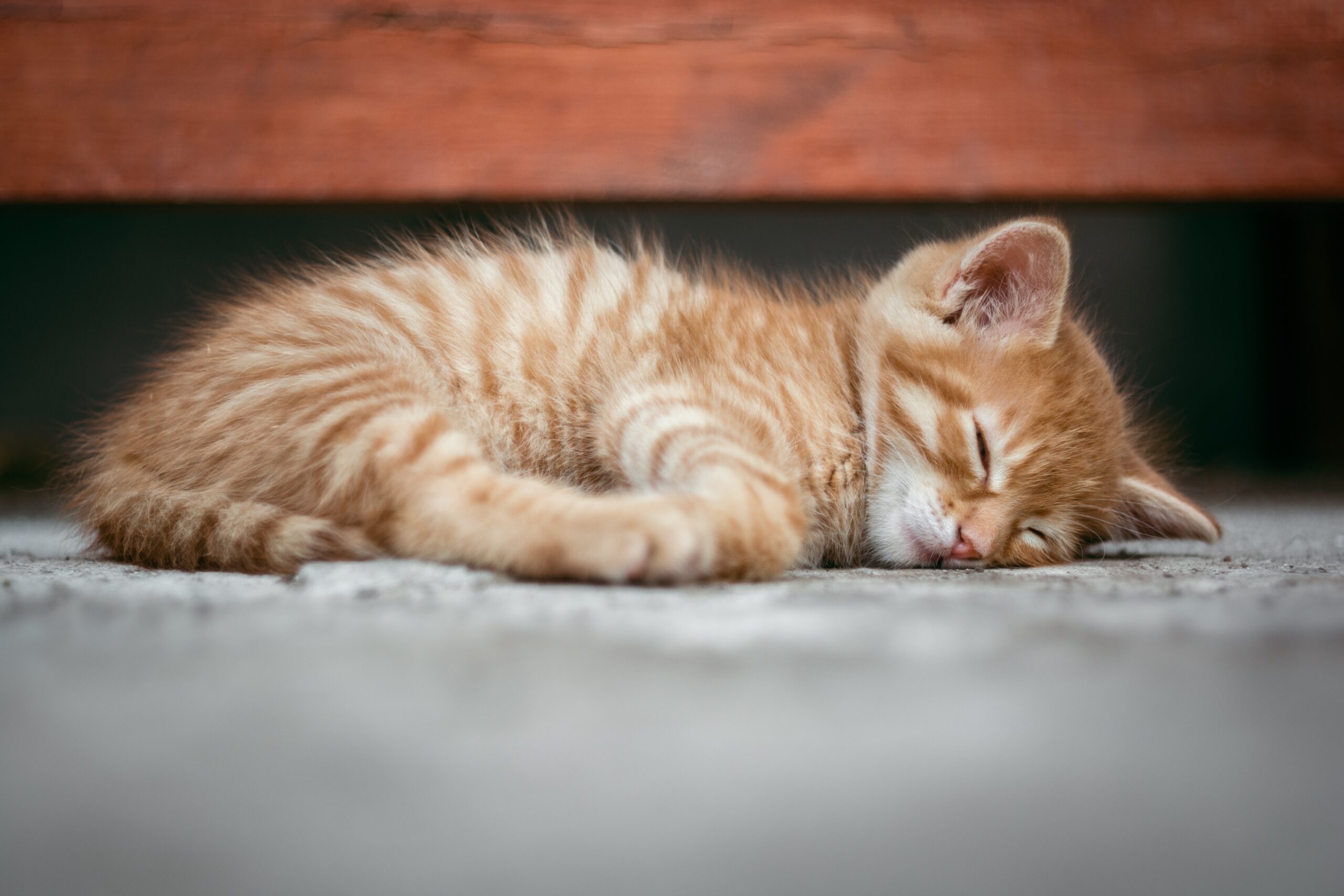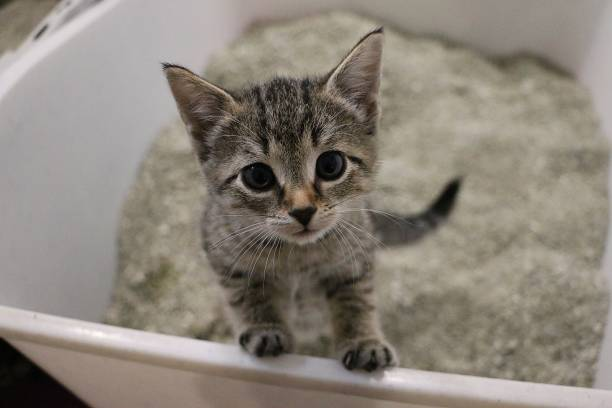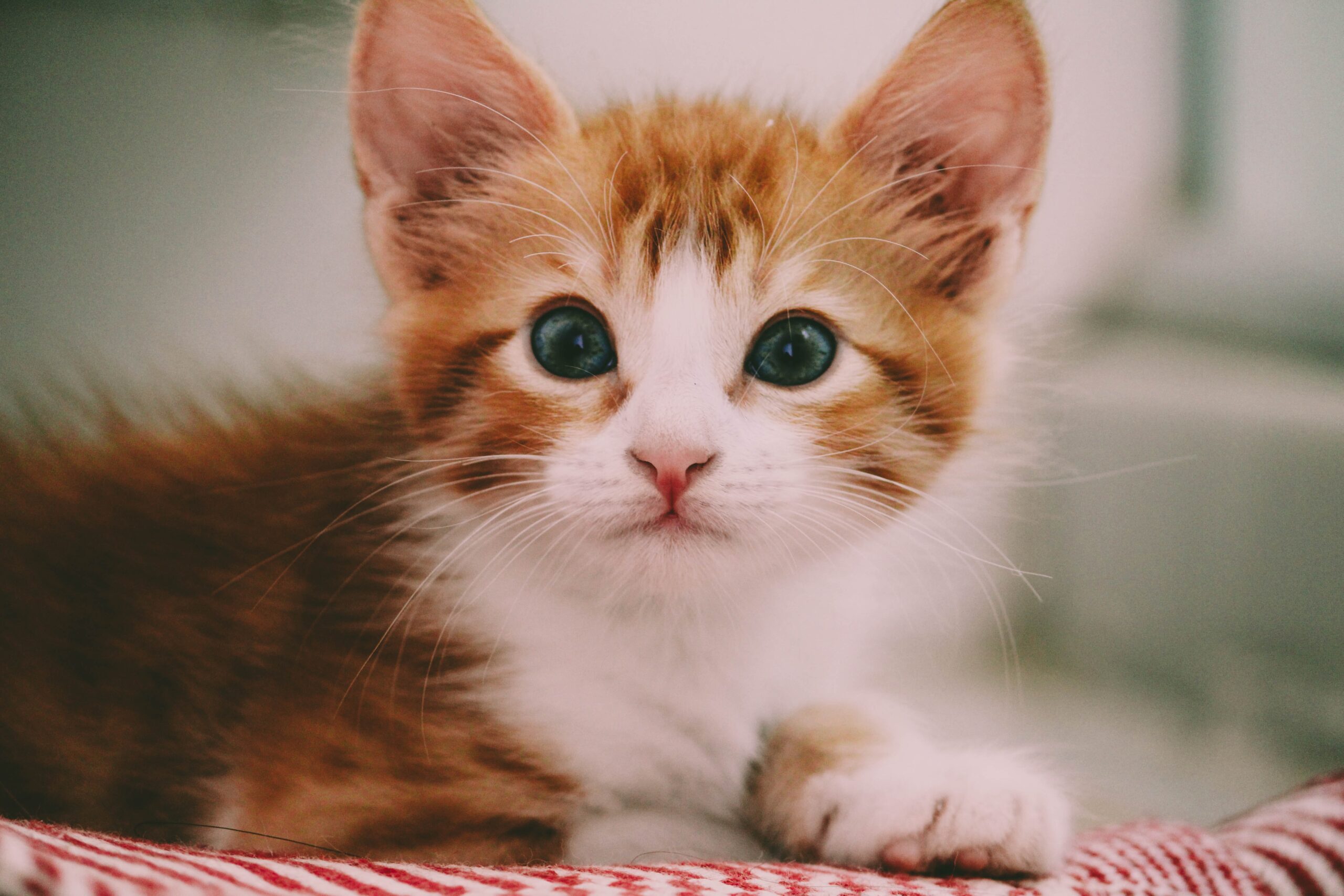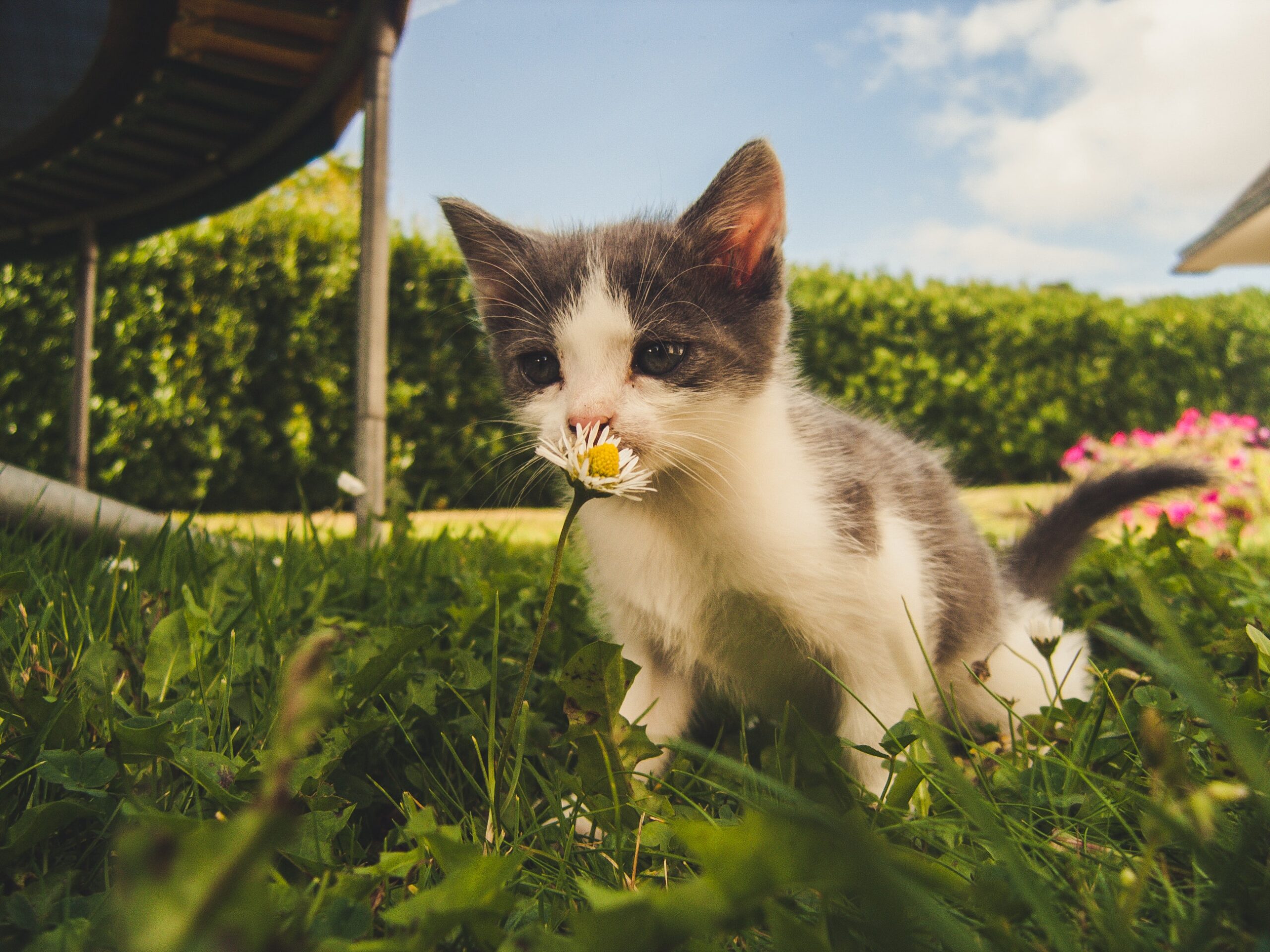Ensuring the health and well-being of your beloved kitten is a top priority as a responsible kitten owner. Recognizing the importance of early detection of illness is crucial in providing timely medical attention, which can significantly impact your kitten’s overall health and quality of life. Kittens are particularly susceptible to various health issues due to their developing immune systems and delicate nature. Detecting signs of illness at an early stage allows for prompt intervention and appropriate medical care, increasing the likelihood of successful treatment and recovery.
Kittens possess innate survival instincts, inherited from their wild ancestors, that make them skilled at masking signs of weakness or discomfort. As a result, they may not display obvious symptoms of illness, making it challenging for pet owners to recognize when something is wrong. Subtle signs of illness can easily go unnoticed or be mistaken for normal behavior, leading to delayed diagnosis and potential complications. By being vigilant and familiarizing yourself with these subtle changes, you can provide your kitten with the best possible care and attention they need to thrive.
This comprehensive article aims to guide kitten owners in recognizing signs of illness that may be exhibited by their young feline companions. We will explore various aspects, including changes in behavior, bathroom habits, and common indicators of respiratory, digestive, skin, and coat issues. Additionally, we will highlight the importance of monitoring eye and ear problems, fever, and changes in social behavior. Furthermore, we will emphasize the significance of regular veterinary care and knowing when to seek professional attention. Armed with this knowledge, you will be better equipped to provide your kitten with the care and support they need for a healthy and happy life.
Changes in Behavior
Decreased Appetite or Sudden Weight Loss
One of the earliest indicators of illness in kittens is a noticeable decrease in appetite or sudden weight loss. As a responsible pet owner, it is essential to pay close attention to your kitten’s eating habits. If you observe a significant decrease in their interest in food or notice a rapid drop in their weight, it may signal an underlying health issue.
Monitoring your kitten’s weight regularly and ensuring they have a healthy appetite can help detect potential health problems early on. If you notice any concerning changes in their eating patterns or weight, it is crucial to seek advice from a veterinarian promptly to address any health concerns.
Changes in Activity Level and Playfulness
Healthy kittens are naturally curious, energetic, and highly playful creatures. Thus, changes in their activity level and playfulness can be indicative of underlying health issues. If your kitten becomes unusually inactive, less interested in their favorite toys, or lacks enthusiasm for playtime, it may be a cause for concern.
Observe your kitten’s behavior during play sessions and their overall activity level throughout the day. Any significant and prolonged decline in their usual playful behavior warrants attention and may necessitate a visit to the veterinarian for a comprehensive examination.
Unusual Sleeping Patterns and Lethargy
Kittens are known for their love of sleep, and it is entirely normal for them to nap for a substantial portion of the day. However, if you notice a sudden increase in sleeping hours or lethargy that seems excessive, it could be a sign of an underlying health problem.
Be attentive to your kitten’s sleeping patterns and their overall energy levels. Lethargy, which is characterized by a lack of interest in their surroundings and an increased desire to rest, can be an indication that your kitten is not feeling well. If you observe prolonged periods of lethargy, it is essential to consult a veterinarian to determine the cause and provide appropriate care.
Observing changes in behavior is crucial for early detection of illness in kittens. Keep a close eye on their appetite, weight, activity level, playfulness, sleeping patterns, and overall energy levels. Any significant deviations from their normal behavior may be a sign of an underlying health issue, and seeking professional veterinary advice early on can ensure your kitten’s well-being and a happy, healthy life.
Monitoring Bathroom Habits
Irregularities in Litter Box Usage
Keeping a close eye on your kitten’s litter box habits is essential for their overall health and well-being. Kittens are naturally inclined to use a litter box from a young age, and any deviations from their regular usage patterns may signal potential health issues. Look out for any irregularities, such as avoiding the litter box altogether or using it less frequently.
If you notice your kitten is not using the litter box as usual, it could be a sign of discomfort or illness. Possible causes may range from urinary tract infections to gastrointestinal problems. In such cases, it is essential to consult with a veterinarian to identify and address the underlying issue promptly.
Changes in Urine or Feces Appearance
The appearance of your kitten’s urine and feces can provide valuable insights into their health. Regularly inspect the litter box for any changes in the color, consistency, or odor of their waste. Dark, bloody, or unusually foul-smelling urine or feces may indicate a potential problem.
Changes in urine or feces appearance may be associated with various health conditions, including urinary tract infections, parasites, or dietary issues. Should you notice any abnormalities, seeking prompt veterinary attention is vital for accurate diagnosis and appropriate treatment.
Straining or Discomfort During Elimination
Observing your kitten while they use the litter box can help you identify any signs of straining or discomfort during elimination. Straining to urinate or defecate, frequent trips to the litter box with little to no output, or signs of pain can be alarming indicators of a possible health problem.
Straining during elimination may be indicative of urinary issues, constipation, or gastrointestinal discomfort. These conditions can be distressing for your kitten and may require immediate medical attention. If you notice any signs of discomfort during elimination, it is crucial to consult your veterinarian to assess and manage the situation promptly.
Monitoring your kitten’s bathroom habits is a vital aspect of responsible pet ownership. Pay attention to irregularities in litter box usage, changes in urine or feces appearance, and signs of straining or discomfort during elimination. Being attentive to these aspects can help you identify potential health concerns early on and ensure that your kitten receives appropriate medical care for a happy and healthy life.
Recognizing Respiratory Issues
Sneezing, Coughing, or Nasal Discharge
Respiratory issues can affect kittens, just like any other living beings. If you notice your kitten frequently sneezing, coughing, or having nasal discharge, it may be a sign of respiratory distress. Sneezing and coughing are natural ways for the body to clear the respiratory tract of irritants, but persistent or severe episodes could be indicative of an infection or allergy.
Observe your kitten for any changes in their breathing patterns or signs of discomfort while breathing. If you notice persistent sneezing, coughing, or nasal discharge, it is crucial to seek veterinary advice promptly. Early diagnosis and appropriate treatment can prevent the condition from worsening and ensure your kitten’s respiratory health.
Labored Breathing or Rapid Breathing
Normal breathing for a healthy kitten should be smooth, quiet, and not require much effort. Labored breathing, characterized by visible effort in each breath or increased respiratory rate, is a serious cause for concern. Rapid breathing can be a sign of various respiratory issues, including infections, asthma, or other underlying health problems.
Pay attention to your kitten’s breathing rate and any signs of labored breathing, such as flared nostrils or heaving chest. If you observe any abnormalities, seek immediate veterinary attention, as respiratory problems can quickly escalate and be life-threatening if left untreated.
Frequent and Excessive Eye Discharge
Kittens with respiratory issues may also experience frequent and excessive eye discharge. Watery or thick, mucus-like discharge around the eyes can be an indication of a respiratory infection affecting the tear ducts. This discharge may cause crust formation around the eyes, leading to discomfort and potential eye infections.
Regularly check your kitten’s eyes for any unusual discharge and observe their behavior for signs of eye irritation. If you notice persistent eye discharge or signs of discomfort, consult your veterinarian to address the respiratory issue and prevent any complications.
Recognizing respiratory issues in kittens is crucial for maintaining their health and well-being. Watch out for signs such as sneezing, coughing, nasal discharge, labored breathing, rapid breathing, and excessive eye discharge. Timely veterinary intervention can help diagnose and treat respiratory problems effectively, ensuring your kitten’s respiratory system functions properly and allowing them to lead a healthy and active life.
Identifying Digestive Distress
Vomiting or Regurgitation
Digestive issues can affect kittens, leading to vomiting or regurgitation of their food. While occasional vomiting may not be cause for immediate concern, frequent or persistent episodes can indicate an underlying problem. Vomiting is the forceful expulsion of stomach contents, whereas regurgitation is the effortless expelling of undigested food from the esophagus.
Keep a close eye on your kitten’s eating habits and behavior after meals. If you notice recurrent vomiting or regurgitation, or if it is accompanied by other concerning symptoms, such as lethargy or loss of appetite, it is crucial to consult your veterinarian. Identifying the cause of these digestive issues will help implement the appropriate treatment plan and prevent dehydration or malnutrition.
Diarrhea or Constipation
Changes in your kitten’s bowel movements can also indicate digestive distress. Diarrhea, characterized by loose and watery stools, can lead to dehydration if not addressed promptly. On the other hand, constipation, marked by difficulty in passing stools or infrequent bowel movements, can be uncomfortable for your kitten.
Monitor your kitten’s litter box regularly to assess the consistency and frequency of their bowel movements. If you notice persistent diarrhea or constipation, or if it is accompanied by blood or mucus in the stool, consult your veterinarian for an accurate diagnosis and proper management.
Signs of Discomfort or Pain After Eating
Digestive distress may cause discomfort or pain in your kitten after eating. If your kitten exhibits signs of abdominal discomfort, such as restlessness, vocalization, or hunching over, it could indicate gastrointestinal issues. They may also display reluctance or hesitation to eat, which is not typical for healthy and eager eaters.
Observe your kitten during and after meals to look for any signs of discomfort or pain. If these symptoms persist or worsen, it is essential to seek veterinary attention. Identifying and addressing digestive issues promptly can help your kitten maintain a healthy appetite and overall well-being.
Recognizing signs of digestive distress is vital for the health and comfort of your kitten. Be attentive to symptoms such as vomiting, regurgitation, diarrhea, constipation, and signs of discomfort after eating. Seeking veterinary advice when necessary will allow for proper diagnosis and management of digestive issues, ensuring your kitten’s digestive system remains healthy and functioning optimally.
Skin and Coat Abnormalities
Hair Loss or Bald Patches
A healthy kitten’s coat should be soft, smooth, and evenly distributed across their body. If you notice areas of hair loss or bald patches, it may be a sign of an underlying issue. Hair loss can result from various factors, including skin infections, allergies, or parasitic infestations.
Regularly examine your kitten’s fur for any abnormal areas and pay attention to changes in their grooming habits. If you observe excessive grooming or self-mutilation leading to hair loss, it is essential to consult your veterinarian. Identifying the cause of hair loss is crucial to implementing appropriate treatment and restoring your kitten’s coat to its healthy state.
Excessive Itching, Scratching, or Licking
Kittens may scratch, lick, or bite themselves occasionally as part of normal grooming behavior. However, excessive itching, scratching, or licking of the skin can be a sign of skin irritation, allergies, or parasitic infestations. Persistent scratching can lead to skin lesions, inflammation, and secondary infections.
Observe your kitten for any excessive grooming behavior and check their skin for signs of redness or irritation. If you notice prolonged or intense itching, consult your veterinarian to identify the underlying cause and provide relief for your kitten’s discomfort.
Presence of Fleas, Ticks, or Other Parasites
Fleas, ticks, and other parasites can infest kittens, causing significant discomfort and potential health problems. Fleas, in particular, are common culprits for skin irritations and excessive itching. Ticks can transmit diseases to kittens, making it essential to remove them safely and promptly.
Thoroughly inspect your kitten’s fur, especially around their neck, ears, and base of the tail, for signs of parasites. Look for tiny black or brown dots (flea dirt) or small insects moving through the fur. If you find any parasites, take immediate action to address the infestation. Consult your veterinarian for safe and effective treatment options to eliminate parasites and prevent future infestations.
Paying attention to skin and coat abnormalities is crucial for maintaining your kitten’s overall health and comfort. Keep an eye out for hair loss, excessive itching, scratching, licking, and the presence of fleas, ticks, or other parasites. Prompt veterinary intervention will help diagnose and treat any skin or coat issues, ensuring your kitten’s skin remains healthy, and their coat stays shiny and lustrous.
Eye and Ear Issues
Redness, Swelling, or Discharge in the Eyes
The eyes are a window to your kitten’s overall health, and any changes in their appearance should not be ignored. Redness, swelling, or the presence of abnormal discharge in the eyes can indicate eye infections, allergies, or other underlying issues.
Regularly inspect your kitten’s eyes for any signs of redness, puffiness, or excessive tearing. Additionally, pay attention to any unusual eye discharge, such as thick mucus or greenish discharge, as these can be indications of infection. If you notice any of these eye issues, seek veterinary attention promptly to prevent potential vision problems and ensure your kitten’s ocular health.
Unusual Ear Odor or Excessive Ear Scratching
Ear issues are common in kittens and can be uncomfortable for them if left untreated. An unusual odor emanating from the ears or excessive scratching around the ear area may suggest ear infections, ear mites, or other ear-related problems.
Gently inspect your kitten’s ears and look for signs of redness, swelling, or dark-colored discharge. Ear mites, which are tiny parasites that infest the ear canal, can also cause irritation and discomfort. If you observe any concerning ear issues, consult your veterinarian to determine the cause and receive appropriate treatment.
Loss of Balance or Head Tilting
Loss of balance or head tilting is a more severe sign of potential health issues in kittens. If your kitten exhibits a lack of coordination, struggles to maintain balance, or tilts their head to one side, it could be a symptom of an inner ear infection or neurological problem.
Observe your kitten’s movements and behavior closely, especially during playtime or when they are trying to walk. If you notice any signs of disorientation or balance issues, seek immediate veterinary attention. Early diagnosis and intervention are crucial to address the underlying cause and prevent further complications.
Paying attention to your kitten’s eye and ear health is essential for their overall well-being. Be vigilant for signs of redness, swelling, discharge in the eyes, unusual ear odor, excessive ear scratching, loss of balance, or head tilting. Seeking professional veterinary care when you notice any of these issues will help ensure your kitten’s eyes and ears remain healthy, promoting their sensory functions and enhancing their quality of life.
Signs of Fever
Warm Ears, Paws, or Nose
Monitoring your kitten’s body temperature is crucial for detecting signs of a potential fever. When a kitten has a fever, their body temperature rises above the normal range. A simple way to check for fever is by feeling their ears, paws, or nose. If any of these body parts feel unusually warm or hot to the touch, it may indicate a fever.
Keep in mind that external factors, such as a warm environment or physical activity, can temporarily elevate body temperature. However, if your kitten’s ears, paws, or nose consistently feel warm over an extended period, it is essential to consult your veterinarian for a proper assessment.
Shivering or Tremors
Kittens with a fever may experience shivering or tremors as their body tries to regulate its temperature. Tremors are involuntary muscle movements that can be visible, especially during periods of rest or relaxation. These shivering episodes can be concerning and may indicate that your kitten is experiencing discomfort due to a fever.
Observe your kitten’s behavior and physical movements for any signs of shivering or tremors. If you notice these symptoms, especially in combination with other signs of illness, it is crucial to seek veterinary attention promptly.
Refusal to Eat or Drink
Kittens with a fever may lose their appetite and show reluctance to eat or drink. Fever can cause discomfort and make eating or drinking unappealing to them. Dehydration can also become a concern if your kitten is not taking in sufficient fluids.
Monitor your kitten’s food and water intake daily. If you notice a significant decrease in their appetite or drinking habits, it is essential to consult your veterinarian. Maintaining proper hydration and nutrition is vital for your kitten’s recovery and overall well-being.
Recognizing signs of a fever in kittens is essential for providing timely care and support during their illness. Be attentive to warm ears, paws, or nose, shivering or tremors, and refusal to eat or drink. If you suspect your kitten may have a fever, consult your veterinarian for a comprehensive evaluation and appropriate management to ensure a swift and successful recovery.
Changes in Social Behavior
Withdrawal or Avoidance of Human Interaction
Kittens are naturally social creatures and typically enjoy human interaction and affection. If your kitten starts to withdraw or avoids contact with you or other family members, it could be a sign of underlying discomfort or illness. Social withdrawal may manifest as your kitten hiding in unusual places, avoiding eye contact, or not responding to their name or familiar sounds.
Pay attention to any changes in your kitten’s social behavior and level of engagement with people. If you notice persistent withdrawal or avoidance of human interaction, it is crucial to monitor their overall health and seek veterinary advice if necessary.
Aggression or Unusual Aggression Towards Littermates
Kittens usually engage in playful interactions with their littermates, and occasional rough play is normal. However, if you observe a sudden increase in aggressive behavior or unusual hostility towards littermates or other pets, it may be a cause for concern.
Aggression in kittens can be a result of stress, fear, or pain due to an underlying health issue. Monitor their playtime and interactions with littermates for any signs of aggression. If aggressive behavior persists or escalates, consult your veterinarian to address potential medical or behavioral causes.
Changes in Vocalization or Communication
Kittens communicate through various vocalizations, such as meowing, purring, and chirping, to express their needs, emotions, and desires. If you notice a significant change in your kitten’s vocalization patterns, it may be a sign of distress or discomfort.
An increase in meowing or vocalizing, especially if accompanied by other signs of illness, could indicate that your kitten is experiencing pain or seeking attention. Conversely, a sudden decrease in vocalization may suggest that they are feeling unwell or are in a state of discomfort.
Observe your kitten’s vocalization patterns and any changes in their communication with you. If you have concerns about their vocalization or notice any unusual behavior, consult your veterinarian for a thorough evaluation.
Monitoring changes in social behavior is essential for understanding your kitten’s emotional well-being and overall health. Be attentive to signs of withdrawal or avoidance of human interaction, aggressive behavior towards littermates, and changes in vocalization or communication. Addressing any issues promptly and providing appropriate care and support will contribute to your kitten’s emotional and physical well-being, fostering a loving and harmonious relationship between you and your feline companion.
The Importance of Veterinary Care
When to Seek Veterinary Attention
Proactive veterinary care is an essential aspect of responsible kitten ownership. Knowing when to seek veterinary attention can make a significant difference in your kitten’s health and quality of life. If you observe any concerning signs of illness, changes in behavior, or abnormal physical symptoms, it is crucial to contact your veterinarian promptly.
Common signs that warrant veterinary attention include persistent vomiting or diarrhea, changes in appetite, difficulty breathing, excessive itching or scratching, eye or ear issues, and any signs of pain or discomfort. Early intervention can prevent potential complications and ensure your kitten receives the necessary treatment and care.
Understanding the Significance of Early Diagnosis
Early diagnosis is key to successful treatment and a positive outcome for your kitten’s health. Kittens are more susceptible to certain health issues due to their developing immune systems, and illnesses can progress rapidly if left untreated. Prompt identification of health concerns can lead to more effective interventions and better chances of recovery.
Your veterinarian will conduct a thorough examination, potentially including blood tests, imaging, and other diagnostic procedures, to accurately assess your kitten’s condition. Early diagnosis allows for timely intervention and a higher likelihood of restoring your kitten’s health to its optimal state.
How Regular Check-ups Can Prevent and Detect Illness
Regular veterinary check-ups are crucial for maintaining your kitten’s overall health and well-being. Routine examinations allow your veterinarian to monitor your kitten’s growth, development, and vaccination needs. Additionally, these visits offer an opportunity to detect potential health issues before they become more severe.
During regular check-ups, your veterinarian will assess your kitten’s weight, vital signs, dental health, and overall physical condition. They will also discuss any concerns you may have and provide guidance on diet, exercise, and preventive measures.
Routine vaccinations and preventive treatments for parasites, such as fleas and worms, are vital components of regular veterinary care. These measures help protect your kitten from various diseases and ensure they have the best chance of leading a healthy and happy life.
Prioritizing veterinary care for your kitten is vital for their well-being and longevity. Knowing when to seek veterinary attention, understanding the importance of early diagnosis, and scheduling regular check-ups can prevent and detect illness, ensuring that your kitten receives the best possible care and support throughout their life. A strong partnership with your veterinarian will help you provide your kitten with the love and attention they need to thrive as a beloved member of your family.
Conclusion
Recognizing signs of illness in kittens is crucial for providing them with timely and appropriate care. In this comprehensive article, we have highlighted various indicators that may suggest your kitten is unwell. These signs include changes in behavior, bathroom habits, respiratory issues, digestive distress, skin and coat abnormalities, signs of fever, and alterations in social behavior.
As responsible pet owners, it is our duty to closely observe our kittens and be attentive to any changes in their physical and behavioral patterns. Early detection of health issues allows for timely veterinary intervention and improves the chances of successful treatment and recovery. By being proactive and vigilant, you can ensure that your kitten receives the best possible care and attention when they need it most.
Owning a kitten is a rewarding experience, and providing them with a happy and healthy life should be a top priority. As you embark on this journey with your feline companion, we encourage you to prioritize their health and well-being. Regular veterinary check-ups, proper nutrition, a safe and stimulating environment, and attentive care will contribute to your kitten’s long-term happiness and overall health.
Remember that every kitten is unique, and understanding their individual needs and behaviors is essential in ensuring their optimal development and lifelong companionship. Investing time, attention, and love into your kitten’s care will strengthen the bond between you and your furry friend, creating a lasting relationship built on trust and mutual happiness.
Being informed and observant about your kitten’s health is vital for fostering a loving and nurturing environment. By recognizing the signs of illness, seeking veterinary care when needed, and prioritizing your kitten’s well-being, you are taking significant steps towards providing them with a fulfilling and joyful life as a cherished member of your family. Together, let us embrace the joys of kitten ownership and cherish the precious moments with our beloved feline companions.










